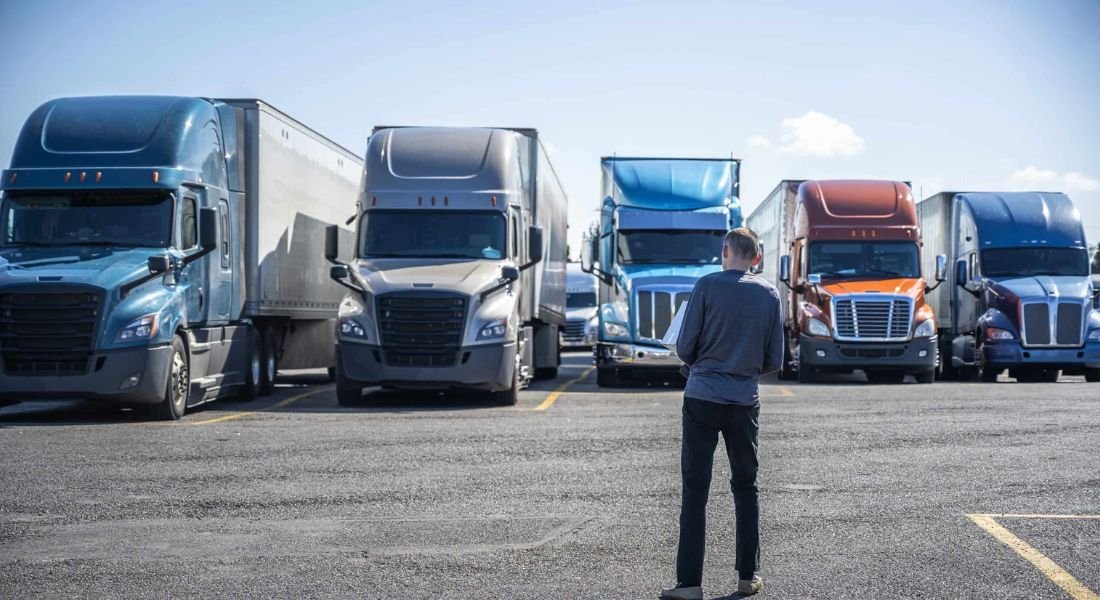The trucking industry is experiencing a technological revolution, and insurance providers are leveraging these advancements to transform their risk assessment, underwriting, and policy management processes. This shift is not only improving the accuracy of insurance pricing but also enhancing road safety and operational efficiency for trucking companies. As a result, reliable trucking insurance service solutions are emerging, offering comprehensive coverage tailored to the evolving needs of modern fleet operators and addressing the unique challenges posed by technological advancements in the industry.
Telematics and its role in risk assessment
Telematics devices, which collect and transmit real-time data about vehicle performance and driver behavior, are revolutionizing risk assessment in trucking insurance. These small, GPS-enabled devices provide insurers with a wealth of information, including:
- Driving patterns: Speed, acceleration, and braking habits
- Route information: Frequently traveled roads and areas
- Vehicle usage: Hours of operation and idle time
- Maintenance data: Engine performance and wear indicators
By analyzing this data, insurance companies can create more accurate risk profiles for individual drivers and fleets. This allows for personalized pricing models that reward safe driving behaviors and incentivize improvements in areas of concern.
Telematics also enables insurers to offer value-added services to their clients. For instance, they can provide fleet managers with insights on fuel efficiency, route optimization, and driver performance, helping trucking companies reduce costs and improve overall operations.
AI-driven underwriting processes
Artificial Intelligence (AI) and Machine Learning (ML) are transforming the underwriting process in trucking insurance. These technologies can process vast amounts of data from various sources, including telematics devices, historical claims data, weather patterns, and traffic information, to create more sophisticated risk models.
AI-driven underwriting offers several advantages:
- Faster processing: AI can analyze complex data sets in seconds, significantly reducing the time required for risk assessment and policy issuance.
- Improved accuracy: By considering a wider range of factors and identifying subtle patterns, AI can provide more precise risk evaluations.
- Reduced bias: AI algorithms can help minimize human bias in the underwriting process, leading to fairer pricing.
- Continuous learning: ML models can adapt and improve over time as they process more data, refining their predictive capabilities.
These AI-powered systems allow insurers to offer more competitive rates to low-risk drivers and fleets while maintaining profitability through more accurate risk assessment of higher-risk clients.
The future of real-time policy adjustments
The combination of telematics and AI is paving the way for dynamic, real-time policy adjustments in trucking insurance. This revolutionary approach allows insurers to modify coverage and pricing based on current conditions and behaviors, rather than relying solely on historical data.
Some potential applications of real-time policy adjustments include:
- Usage-based insurance: Policies that adjust premiums based on actual miles driven or hours of operation.
- Behavior-based pricing: Real-time rate adjustments reflecting current driving habits and safety scores.
- Route-specific coverage: Temporary coverage changes for high-risk areas or challenging weather conditions.
- Instant policy modifications: Allowing trucking companies to quickly add or remove vehicles from their coverage as needed.
These dynamic policies offer benefits to both insurers and trucking companies. Insurers can more accurately price risk and reduce their exposure, while trucking companies gain more control over their insurance costs and can see immediate benefits from improvements in their safety practices.
As these technologies continue to evolve, we can expect to see even more innovative applications in trucking insurance. From predictive maintenance alerts to AI-powered claims processing, the future of trucking insurance promises to be more efficient, accurate, and tailored to the unique needs of each fleet and driver.






















Leave a Reply